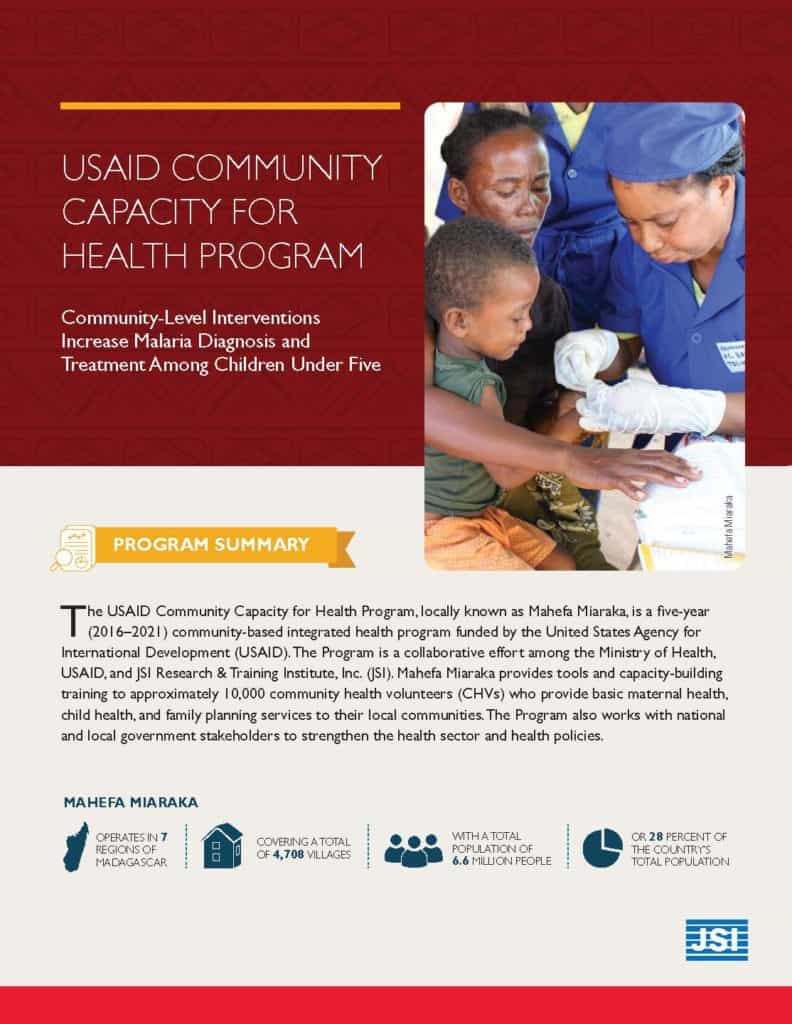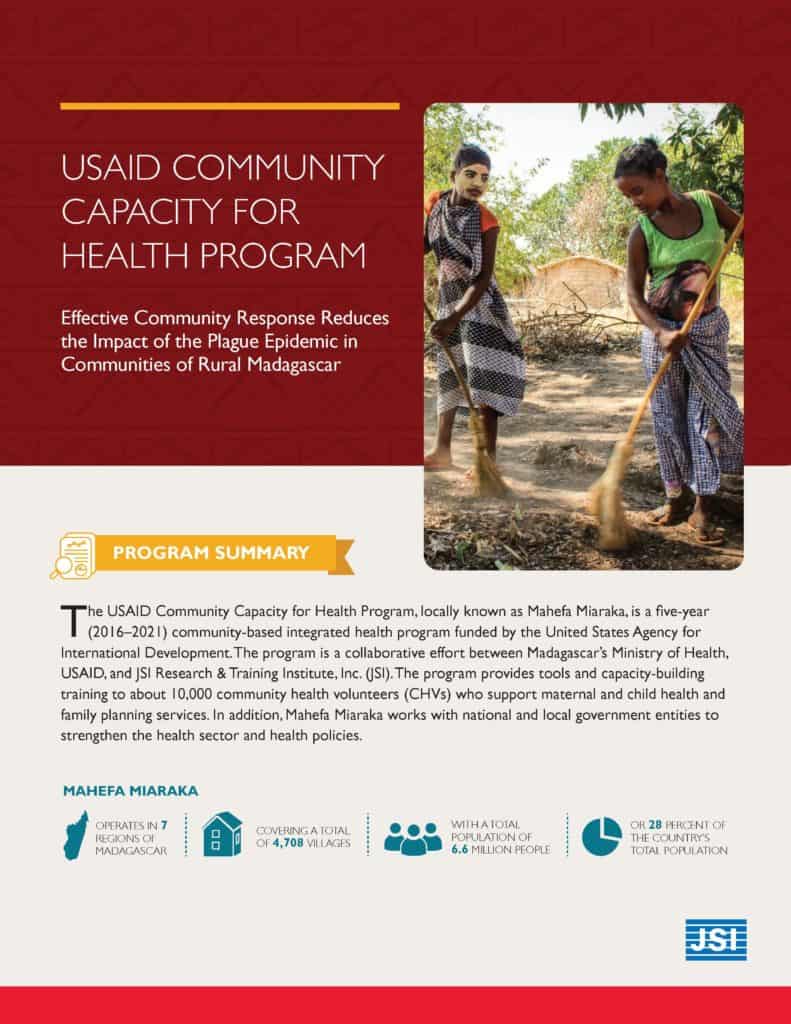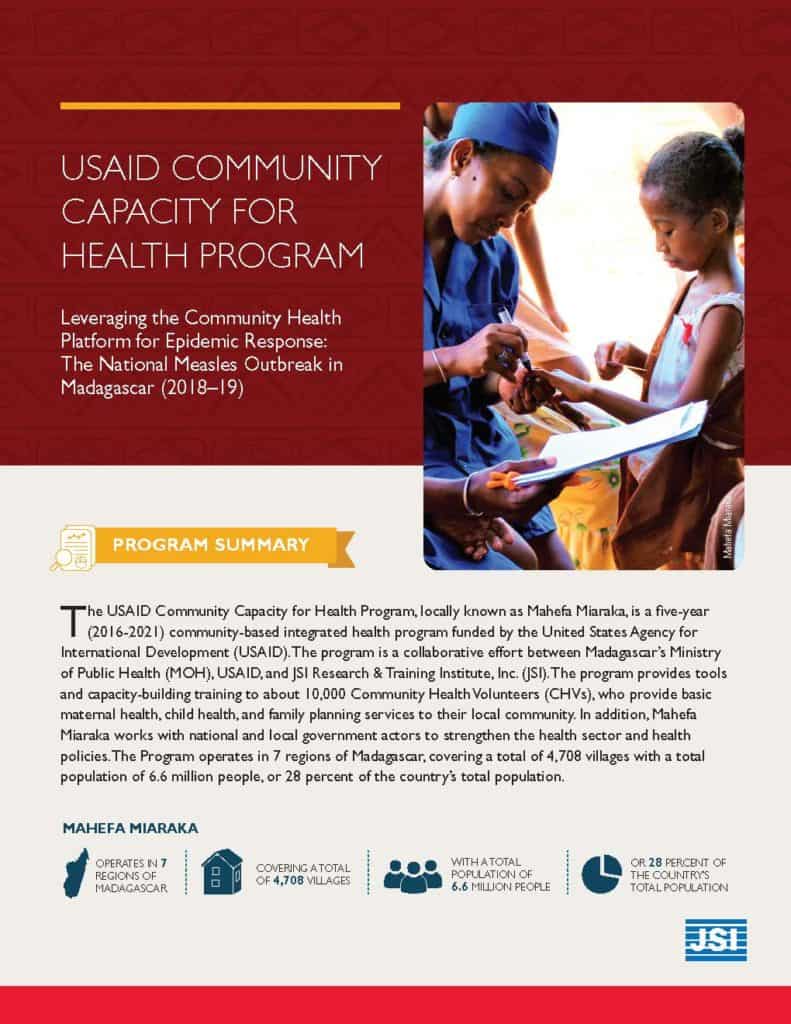Real-time Surveillance and Epidemic Response: Lessons from plague, measles, and malaria outbreaks in Madagascar
May 18th, 2021 | news
Controlling outbreaks of measles, plague, and malaria requires a multi-pronged approach. Enter the USAID Community Capacity for Health Program, locally known as Mahefa Miaraka in Madagascar.
A collaborative effort of the Ministry of Health, USAID, and JSI Research & Training Institute, Inc., Mahefa Miaraka partners with national and local government stakeholders to strengthen health sector policies. The five-year (2016–2021) program has. trained and equipped approximately 10,000 community health volunteers (CHVs) to offer basic maternal and child health, and family planning services in their communities. Mahefa Miaraka serves 6.6 million people, nearly 28% of the country’s total population.
Mahefa Miaraka recently produced technical briefs detailing its interventions.

Community-Level Interventions Increase Malaria Diagnosis and Treatment among Children Under Five
Malaria is endemic in Madagascar, especially in the coastal areas and parts of the central highlands. CHVs play a vital role in malaria prevention and treatment in communities that are far from health services and transportation means are limited. Mahefa Miaraka’s three-pronged approach helped prevent and control malaria outbreaks in a sustained manner.

Effective Community Response Reduces the Impact of the Plague Epidemic in Communities of Rural Madagascar
In August 2017, Madagascar experienced a plague epidemic that affected both endemic and non-endemic areas, including major urban areas such as the capital Antananarivo. The pneumonic form of the plague is highly contagious and can result in death. Mahefa Miaraka and health officials’ response, which focused on community education and vigilance, surveillance, and containment strategies, resulted in a decline in plague cases.

Leveraging the Community Health Platform for Epidemic Response – The National Measles Outbreak, 2018–2019
Between September 2018 and November 2019, Madagascar experienced an unprecedented measles epidemic of over 244,000 cases, including more than 31,500 complicated cases and 1,000 reported deaths registered nationwide. The Ministry of Public Health led a coordinated response to control the epidemic. Mahefa Miaraka marshaled its network of nearly 10,000 CHVs and 4,708 village leaders, who helped basic health centers mount a robust community response.
We strive to build lasting relationships to produce better health outcomes for all.